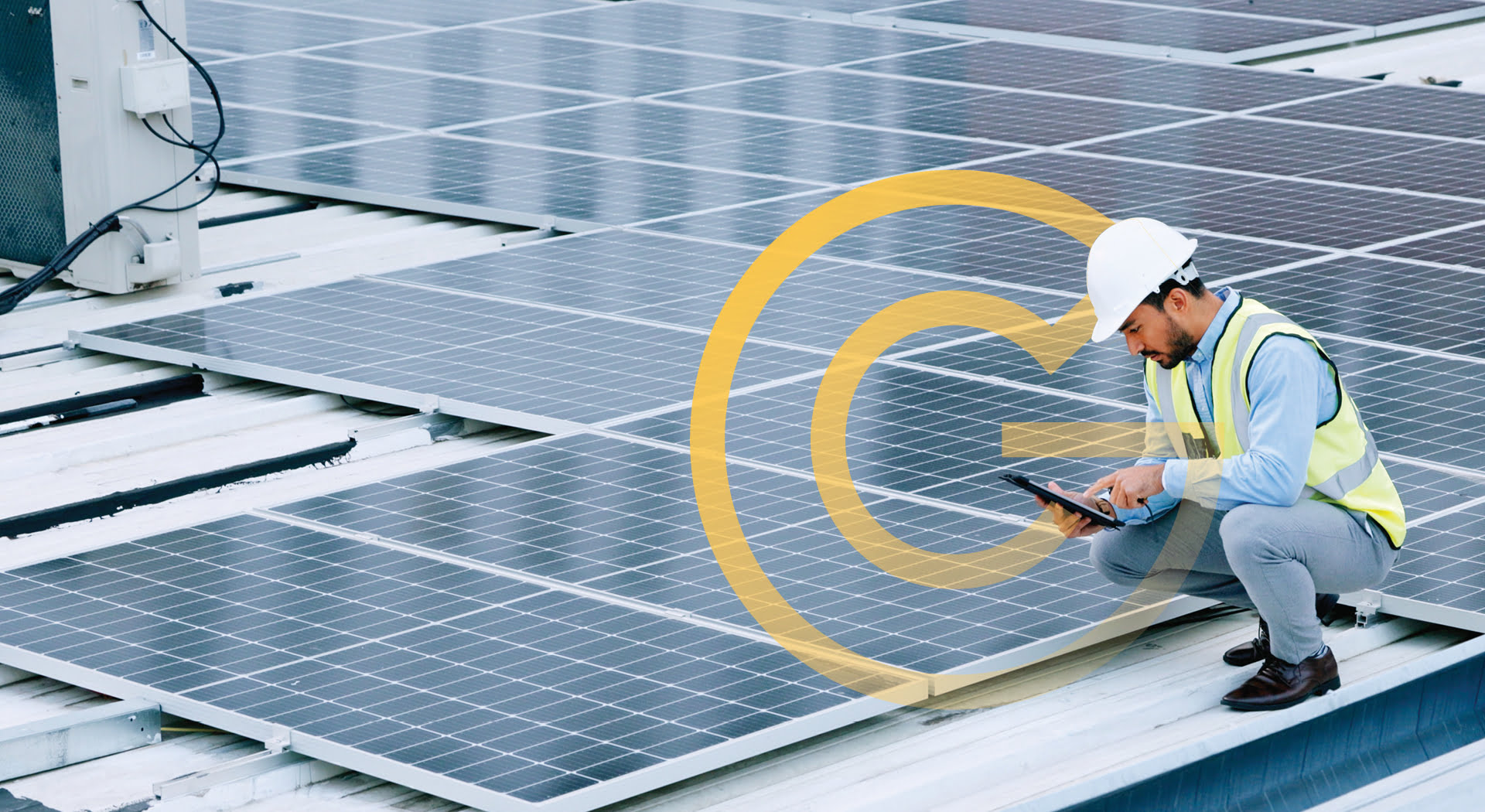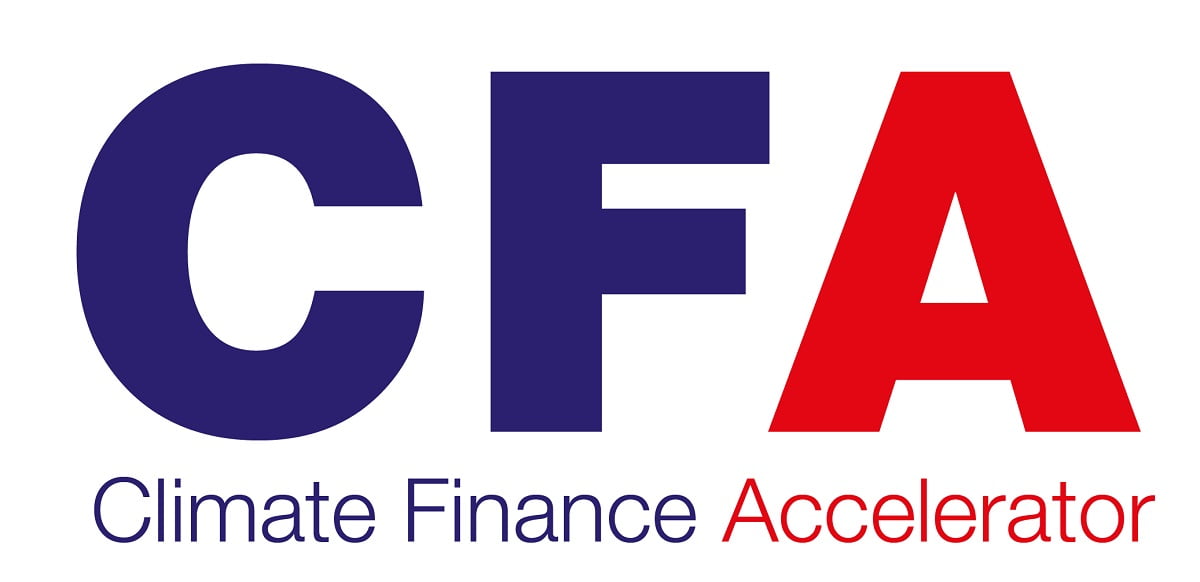SOCIO-ECONOMIC COST BENEFIT ANALYSIS OF THE CITY OF CAPE TOWN’S EMBEDDED RENEWABLE ENERGY GENERATION PROGRAMME
GreenCape has embarked on a project with the UK PACT focusing on supporting the implementation of the City of Cape Town’s Infrastructure Planning and Delivery Framework (IPDF)
As part of this project, we require a service provider to undertake a socio-economic cost benefit analysis (CBA) of the City’s renewable energy generation programme and in particular to evaluate the net socio economic return on this programme vis-à-vis the alternative options Interested organisations are invited to submit quotations to undertake this work.
BACKGROUND TO THE PROJECT
Electrical energy generated from fossil fuels is the biggest contributor to the emissions of carbon dioxide (linked to potentially disastrous rapid climate change) and other, polluting gases among industrial processes. The City of Cape Town is dependent on Eskom for the supply of the bulk of its electrical energy demand, which in turn generates the vast majority of its energy from coal, leading to it being the single biggest emitter of aforementioned harmful emissions in the country, and among the biggest in the world. At the same time, Eskom’s deteriorating generation fleet, has resulted in extensive load shedding that has stalled economic recovery in Cape Town and South
Africa more broadly.
In line with the City’s Climate Change Strategy, the City thus wishes to reduce its Carbon Footprint – and in particular, as it relates to the utilisation of electrical energy. In addition, the City is exposed to the financial impact of above inflation tariff increases granted to Eskom by the NERSA as well as the economic impact of extended periods of load-shedding. In spite of efforts by the City to mitigate the impacts on the end-user, the brunt of these impacts is still borne by the citizens of Cape Town. Considering the current and foreseen precarious financial position of Eskom, its dominance in the local electricity market and its importance to the economy of the country, it is expected that the steep tariff increases granted by the NERSA will continue over the short to medium term, as will ongoing bouts of load-shedding. The City is thus exploring all measures to protect itself, and by extension its’ citizens, from both a financial sustainability perspective against the impact of these foreseen steep tariff increases and from an energy security perspective against increasing power interruptions.
As one response to the conditions described above, the City has initiated a diverse and wide-ranging renewable energy (RE) generation program, mostly driven by its international and local commitments towards mitigating the effects of climate change through the utilisation of sustainable energy sources, its need for increased energy security in the face of diminishing Eskom technical performance and protection of its citizens against the impact of further foreseen electricity tariff increases.
As part of this programme, the City is planning the rollout of various grid connected solar photovoltaic installations, on City-owned land and/or buildings. The facilities will be connected directly to the City’s internal electrical network. The first tranche of projects has completed their feasibility studies, and are undergoing the required internal governance processes to obtain the approval from the City to proceed into execution. The intent, if proven an efficient use of City expenditure, is for these projects to start construction during 2022.
In addition, the City has identified further potential sites for the development of solar PV power plants at various locations. This will significantly increase the size of the program from its current 10 -12MW footprint. The size of this RE own-generation program is projected to reach 100MW, at a potential cost of R1 Billion.
PROBLEM STATEMENT
To reduce carbon emissions, achieve cost savings and to diversify its energy supply more generally, the City is proposing to develop its own additional embedded generation capacity, mainly in the form of renewable energy such as solar photovoltaic (PV), through a range of projects. This initiative marks a significant departure from historical practice in metros and could yield pronounced benefits some of which are highlighted in the section above, but also comes with substantial risk. It is essential that the City consider not just the financial implications of such a decision, but also weigh up the broader societal opportunity costs and benefits of embarking on such a programme.
The City thus has to perform sound decision analysis to confirm that embarking on an own-generation new-build program (sized at potentially 100MW and costing R1 Billion) is the optimal deployment of such capital within a metro with multiple competing priorities and societal pressures, especially considering that renewable energy can be purchased from Independent Power Producers (IPPs) without incurring any project or capital expenditure risk.
The analysis underpinning these considerations will be crucial to the socio-economic case which the programme will need to make as part of the City’s Stage Gate process of major infrastructure projects.
PROJECT AIM
The aim of the project is to undertake a socio-economic cost benefit analysis of the City’s renewable energy generation programme and in particular to evaluate the net socio economic return on this programme vis-à-vis the following alternative options:
- Status quo energy procurement from Eskom
- 100MW procurement from Independent Power Producers
SPECIFIC OBJECTIVES
- Review and augment if necessary the City’s existing financial (cost savings) analysis for the Renewable Programme
- Identify and value all the costs and benefits associated with the project. These may include, but are not limited to: energy cost savings; lower carbon emissions related to energy utilisation; increased energy security; reputational/and investor confidence value; capex impact on the local economy; crowding-in effects on the benefit side; related capex and opex costs and the potential impact on the City’s financial sustainability; the opportunity cost of City land and any other negative externalities on the cost side
- Weigh both the direct and indirect costs and benefits against each other and derive metrics such as NPVs, BCRS or IRRs
- Perform sensitivity analysis by varying key assumptions on future City energy use, cost of renewable energy and Eskom tariffs
- Compare the socio-economic return on the investment vis-à-vis other options (defined in the project aim above) and against returns on other types of infrastructure investments
- Determine whether there are specific threshold volumes at which the return on own generation is no longer positive/desirable (i.e. own generation makes economic sense at low generation but not for higher volumes).
- Help to develop the socio-economic argument for the renewable energy generation programme in support of the City’s stage gate process
SCOPE OF ACTIVITIES
a) Plan the cost benefit analysis, with the CCT and in line with the objectives:
- Meet with the Energy Directorate and the Policy and Strategy Department to clarify the objectives of the programme and the perceived benefits
- Review existing documentation, including feasibility studies and the outcomes of initial energy consumption modelling and cost saving analysis, identifying any gaps in the analysis
- Develop a theory of change for CCT’s RE Programme – clearly specify the underpinning assumptions – that maps the scope of the intervention through the activities that will be delivered to outputs and outcomes for the City
b) Identify the range of costs and benefits associated with the CCT’s RE Generation Programme
- Identify the direct and indirect (socio-economic) benefits associated with the programme and the timing of these benefits as well as who stands to benefit
- Identify the relevant indicators/data that will be required to measure the benefits of the project and determine the data sources that may be used
- Identify the direct (financial) costs of the programme
- Identify additional costs or externalities arising from the programme and identify relevant indicators or data to measure these costs
c) Data collection and valuation of costs and benefits:
- Collect financial data (including operational and capital expenditure, debt servicing and revenue generation) from the CCT for the selected projects. This should also include financial data on future cost flows.
- Engage with E&CC to obtain the energy consumption outputs of the LEAP model
- Collect secondary data on the socio-economic benefits and costs (see section above for an initial outline of these)
- Attach values to unmonetizable benefits and costs using economic appraisal techniques, including shadow pricing; hedonic pricing and willingness to pay
- Where required, undertake primary research (interviews), to quantify or rank indirect or hidden costs and benefits. This may include positive or negative externalities and opportunity costs.
- Where possible, assign a common monetary value (in the same price base) to the
quantified costs and benefits
d) Utilising the data collected, conduct cost benefit analysis of CCT’s Renewable Energy Generation Programme
- Determine whether additional appraisal techniques such as Multi-Criteria Analysis needs to supplement traditional Cost Benefit Analysis
- Discount project costs and benefit streams to present values
- Calculate a measure of project value, including Net Present Value (NPV); Internal Rate of Return (IRR), Benefit Cost Ratio and Cost Effectiveness
- Undertake sensitivity analysis on the cost and benefit streams. This should be based on risk factors to the assumptions of the project as discussed with CCT
- Compare the economic return on investment of the selected project or course of action with the next best alternative, in this instance: the Eskom energy purchases status quo; and procurement of the same magnitude of energy from IPPs over a set planning horizon (typically 20 years)
- Compare the economic return on investment against typical returns on other major infrastructure projects
- Interpret the findings of the cost benefit analysis and provide recommendations to the CCT as to whether the CCT’s proposed investment in RE generation constitutes an efficient investment of City resources
- Provide recommendations deriving from the analysis that includes, where appropriate, recommendations for the extent of own generation that constitutes efficient investment by the City (indicating the ideal mix of own generation and IPP procurement)
DELIVERABLES
1. An inception report detailing approach and methodology
2. Meeting minutes and interview summaries
3. A customisable excel (or alternative analytical programme) based Cost Benefit
Analysis model. This should be built in such a way that assumptions can be changed
over time.
4. Regular update presentations to the project steering committee (likely to be
scheduled on a monthly basis)
5. A final report and slide deck detailing findings and recommendations
6. A short memo summarising the economic case (or non-case) for CCT RE generation
TIMEFRAME
Depending on the proposal submitted by the bidder, the project is expected to require between 4 and 6 months to be completed.
SKILL AND EXPERTISE REQUIREMENTS
The project team or sole bidder should have a Masters’ Degree in Economics with at least 8 years’ experience applying economic analytical techniques to large expenditure projects. The bidder should also have proven experience in undertaking socio-economic cost benefit analysis on large-scale infrastructure projects.
Additional skills and experience that would be advantageous include financial modelling; feasibility analysis and project management. Knowledge of the content field for this project (i.e. energy and renewable energy in particular) will also be highly advantageous. Insight into municipal strategic planning and operations will be beneficial.
GENERAL INFORMATION
1. Any quotation submitted after the closing date and time shall not be considered.
2. GreenCape reserves the right to cancel the procurement process without notice at any time and not make any appointment on this project.
3. All quotations will be evaluated on the basis of a functionality/price/B-BEEE weighting of 50/30/20. B-BBEE points will be calculated as per the table set out in Annexure A to this RFQ.
4. Each bidder must include in its quotation a confirmation that it does not and will not have any actual or potential conflict of interest in submitting its quotation (see Declaration of Interest attached as Annexure B to this RFQ).
5. Functionality will be based on the following criteria:
a. Relevant project experience (20 points)
b. Project team expertise and experience (20 points)
c. Project plan suitability (10 points)
6. The acceptance of a quotation and the awarding of this project or any part thereof to a bidder will be communicated in writing by GreenCape.
7. Following acceptance of a quotation, the appointed bidder will be expected to enter into a service level agreement and a non-disclosure agreement with GreenCape.
8. The successful quote submitted by the bidder will form part of the service level agreement and may not be amended at any time after acceptance unless agreed to in writing by GreenCape and the service provider.
9. The appointed bidder will be expected to comply, inter alia, with the following:
9.1. any applicable health and safety rules and regulations, including, but not limited to, the provisions of the Occupational Health and Safety Act No. 85 of 1993;
9.2. registration and good standing with the Commissioner for Compensation for
Occupational Injuries and Diseases and having the necessary employer’s liability
insurance in respect of its employees/agents in line with the provisions of the
Compensation for Occupational Injuries and Diseases Act No. 130 of 1993, as
amended; and
9.3. sufficient insurance to cover its liabilities in respect of the services to be provided and any other insurances that may specifically be required by GreenCape in relation to its appointment on this project.
SUBMISSION REQUIREMENTS
Interested organisations are invited to submit a quote for the outlined scope of work that should include the following:
1. Quotation for the work, broken down by activity
2. A brief work plan that outlines the proposed approach and methodology that would be taken to achieve the required scope of work. The work plan should include:
a. the timeframes for each activity, noting that the overall scope of work should be
completed by 30 September 2022
b. a brief description of the proposed approach to conducting the research, running
the analysis and synthesising the findings
c. a risk register and mitigation plan that addresses any key project risks
3. CVs of proposed team and team structure/organogram
4. Company profile, indicating previous projects with similar requirements
5. Tax Clearance Certificate
6. Company Registration Certificate
7. Declaration of Interest
8. BEE credentials with certificate or affidavit as relevant
9. Letter of good standing from the Compensation Fund in South Africa (COID)
10. Proof of professional indemnity cover
Please email the above documentation to [email protected] by 17h00 on 11 March 2022, using the reference: GreenCape CCT Green Infra UK PACT RE CBA 2022
For any queries related to this RFQ, please email: [email protected]
You can download the full RFQ here.



